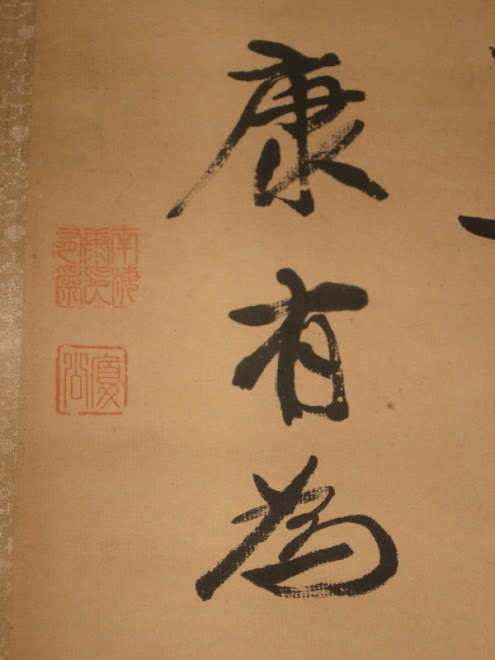A Chinese Reformer in Exile: Kang Youwei and the Chinese Empire Reform Association in North America, 1899-1911
By Robert L. Worden and Jane Leung Larson, with Zhongping Chen, Evelyn Hu-DeHart, Chen Xuezhang, and Yang Zheng
Brill (Leiden), 2025
https://brill.com/display/title/70307
Open Access PDF:
https://brill.com/downloadpdf/display/title/70307.pdf
This complex, transnational history was made possible by . . .
A team of scholars with different perspectives and areas of expertise.
Outside
collaboration with local historians, specialists on topics as diverse as
trolley lines in Mexico and Chinese currency, descendants of Kang and
Baohuanghui members, and those who interacted with this blog, Baohuanghui
Scholarship.
A
wide variety of primary sources:
• Government
records, Chinese and foreign language newspaper coverage.
• Personal
correspondence, diaries, poems, publications by Kang and others.
• Baohuanghui records and ephemera, from menus to membership buttons.
The origin of this book is Worden's 1972 Georgetown University Ph.D. dissertation, “A Chinese Reformer in Exile: The North American Phase of the Travels of Kang Youwei, 1899–1909.” We significantly amplify, update, and reconfigure Worden’s original work, enriched by the many primary sources discovered since 1972 and our complementary areas of expertise.
Tracking Kang’s travels in exile was challenging in itself. Kang toured or lived in all the European countries except Russia, as well as Morocco, Egypt, Turkey, Palestine; India, Sikkim, Ceylon; Burma, Malaya, Thailand, Straits Settlements, the Netherlands Indies; Japan and Hong Kong.
This book documents Kang’s visits to the North American countries of Canada, the United States, and Mexico, where he spent approximately twenty-nine intermittent months between 1899 and 1907.
Kang
traveled for self-edification and to satisfy his prodigious curiosity about the
world, but he was also seeking models for all aspects of Chinese life, from
technology to government. In North America, Kang focused on expanding and
monitoring the Baohuanghui.
The Baohuanghui enabled Chinese in North
America to organize and fund political, commercial, educational, journalistic,
even military, endeavors that improved their communities and gave them the
skills and political savvy to fight for their rights both in North America and
in China itself.
We focus on Kang as a political organizer, who
awakened Chinese nationalism and formed the first mass Chinese political party. We also discuss his impact on politics and movements inside China, in many ways
creating the conditions that led to the 1911 revolution.
We welcome readers' comments and criticism, new information and sources, as we know the work of documenting Kang's exile and the Baohuanghui is not done.
As we find errors in the text, we will be publishing Errata. As of October 20, 2025, the downloadable PDF and subsequent print copies of A Chinese Reformer in Exile correct the previously issued Errata. Please use the blog comment form to send us other errors you find.


No comments:
Post a Comment